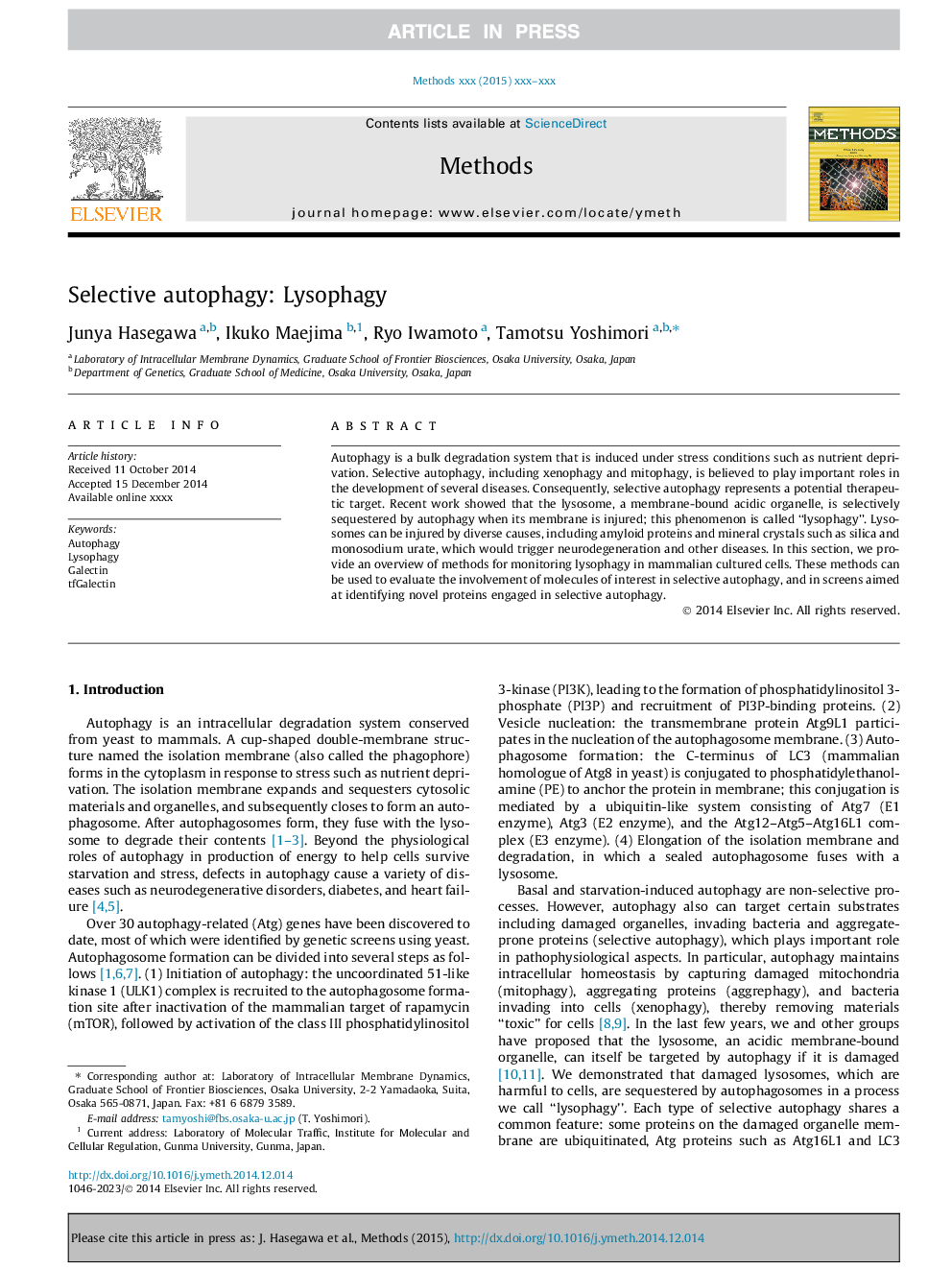| Article ID | Journal | Published Year | Pages | File Type |
|---|---|---|---|---|
| 8340683 | Methods | 2015 | 5 Pages |
Abstract
Autophagy is a bulk degradation system that is induced under stress conditions such as nutrient deprivation. Selective autophagy, including xenophagy and mitophagy, is believed to play important roles in the development of several diseases. Consequently, selective autophagy represents a potential therapeutic target. Recent work showed that the lysosome, a membrane-bound acidic organelle, is selectively sequestered by autophagy when its membrane is injured; this phenomenon is called “lysophagy”. Lysosomes can be injured by diverse causes, including amyloid proteins and mineral crystals such as silica and monosodium urate, which would trigger neurodegeneration and other diseases. In this section, we provide an overview of methods for monitoring lysophagy in mammalian cultured cells. These methods can be used to evaluate the involvement of molecules of interest in selective autophagy, and in screens aimed at identifying novel proteins engaged in selective autophagy.
Related Topics
Life Sciences
Biochemistry, Genetics and Molecular Biology
Biochemistry
Authors
Junya Hasegawa, Ikuko Maejima, Ryo Iwamoto, Tamotsu Yoshimori,
